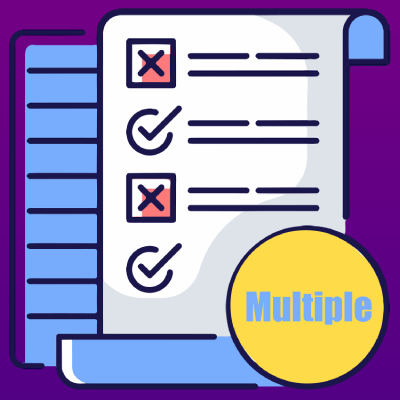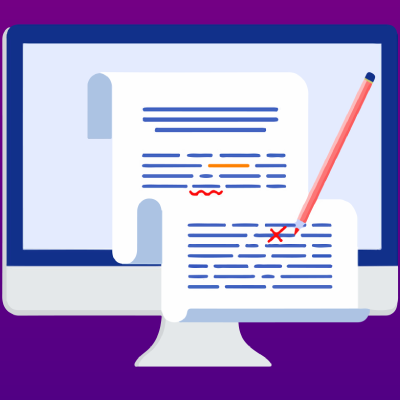Different Strategies for Taking Different Types of Statistics Exams

Use these proven techniques for taking various types of statistics tests and ace your exams without a doubt. Experts recommend them to every college and university statistics student.
You've studied hard, revised thoroughly, slept healthily, ate well, and done everything you could in readiness for your statistics exam. But have you prepared to tackle the different types of questions that you might bump into? If your answer is no, stay tuned for the best test-taking strategies that can help you tackle various types of stats questions like multiple-choice, short-answer, subjective, and true-or-false tests, to mention a few.
You'll prepare for subjective questions differently than for multiple-choice and others. We've explained preparation tips for each category of questions in simple words to make it easier for you to understand. But just before we delve into the information, here are a few things to remember before starting your test — just in case you met this article early enough.
Before The Exam
Ensure that you attend all your classes and complete all assignments given to you on time. Excelling in your career is not only about scoring highly in your exams but also how you conduct yourself and perform in previous tests.
Consider revising in a study group. Share ideas in the group, and don't hesitate to correct one another during revision.
Consider asking for assistance with anything that seems too difficult to understand. In statistics, more advanced concepts usually seem to build on previous ones. For example, if you don't understand what is meant by a hypothesis, you wouldn't know what it means by P-values, null, and alternative hypotheses. So, if you have trouble solving something, get reliable support with it before you proceed to a more advanced one.
- Multiple-choice Statistics Exams
- Filling In the Blanks/Matching
- Compare the number of elements in the two columns you're supposed to match. Do the elements match? If not, are there elements required to match more than one? Or should you leave some of them unmatched?
- Always read all the options before even starting to answer the matching process.
- Start by matching the elements you are sure about and proceed to the others that need more research. Mark off all elements you're through with to have an easier time identifying unmatched ones.
- Check for grammatical clues, number agreement, word tenses, parts of speech, et cetera.
- Essay Statistics Exams
- Think about the sources you might use to support your essay content. You may use articles, journals, other essays, books, et cetera. Read instructions if there are any recommendations about preferred sources.
- Determine how many essay questions you should answer and allocate time for each based on their difficulty levels.
- Read through all the questions carefully and put down the little you know about each question below it. This way, you'll manage anxiety more effectively and concentrate on the question at hand.
- Watch for verbs that outline the examiner's expectation for your response. Such verbs may include:
- Define
- Compare
- Analyze
- Explain
- Prove
- Summarize
- Create a quick outline to organize your essay neatly and ensure that you do not leave out any key points.
- Introduce your essay with a direct answer but ensure that it's concise. Please remember that your instructor will be grading several other papers, so he'll want to see your solution at a glance.
- Review your essay before turning it in for grading. And while doing so, keep an eye on the key areas that determine the destiny of your content like this statement, first & last sentences in each paragraph, topic sentences, conclusion, et cetera. Also, check the essay for plagiarism and grammatical errors. You can use software like Grammarly, CopyScape, and Turnitin.
- Short-answer Exams
- Keep your answers concise. Avoid mentioning everything you know about the topic and focus on what's needed only.
- Read the question carefully, as a small mistake can easily lead to irrelevance.
- Underline critical terms in the question. Doing this helps you stay relevant.
- Revise the components of an excellent argumentative paragraph, grasping how to explain evidence; write a short introductory statement and concluding evidence; give the evidence, and write a topic sentence, to mention a few.
- Spare some time to proofread.
Read carefully and understand the instructions as there might be more answers than one among the multiple choices given. Does the examiner need you to mark more than one answer? Does he need you to rule the odd one out? Ask yourself such questions before deciding on the correct answer(s).
Attempt answering the question in your head before going through the choices provided. Then, consider the options and eliminate any that seem obviously incorrect. Compare the remaining with your thought-out answer and make a decision.
In case there is a passage that you need to read before answering questions, start by reading the question before the passage so that you read the passage while focused.
Consider looking at the grammatical correctness of the available answer options. If any isn't grammatically correct, there are high chances that it's the wrong answer.
Look for words like "not," "except," "apart from," and others that might change the meaning of the question. It's easy to miss the answer without understanding them.

Although these types of questions are less common than others in statistics, it's wrong to rule out the possibility of meeting them in your exams. Here are tips for maximizing your score in them.
Essay questions evaluate your understanding of the course content and ability to think with it. They also assess your writing skills. Unlike multiple-choice, matching, short-answer, and other types of questions, you need more time to answer essay questions. A good essay presents your coherent arguments supported by content from other textbooks, journals, lectures, et cetera. Long story short, use the following hacks to prepare for or take your essay exams:
Before the exam, consider predicting questions you think might be on the test. Practice adequately with the anticipated questions to warm up for the test. This should come days before taking the exam.

Meanwhile, writing comprehensive statistical essays can be an uphill battle, especially if you don't prepare adequately. But there's always an option to avoid failure at all costs. Students can hire someone to take the test for them online. All you need to do is find a reliable expert.
As the name suggests, short-answer questions require short answers that are accurate and straight to the point. They need very specific information about the topic in question. For example, you might be asked to explain t-tests or differentiate between null and alternative hypotheses briefly. Take these types of tests using the following tips:
The Bottom Line
You now understand how to do the various types of statistical tests that you're likely to meet. Try these strategies and thank us later. Meanwhile, don't forget to include your name after finishing your test. We wish you the best of luck in your next statistics exam!